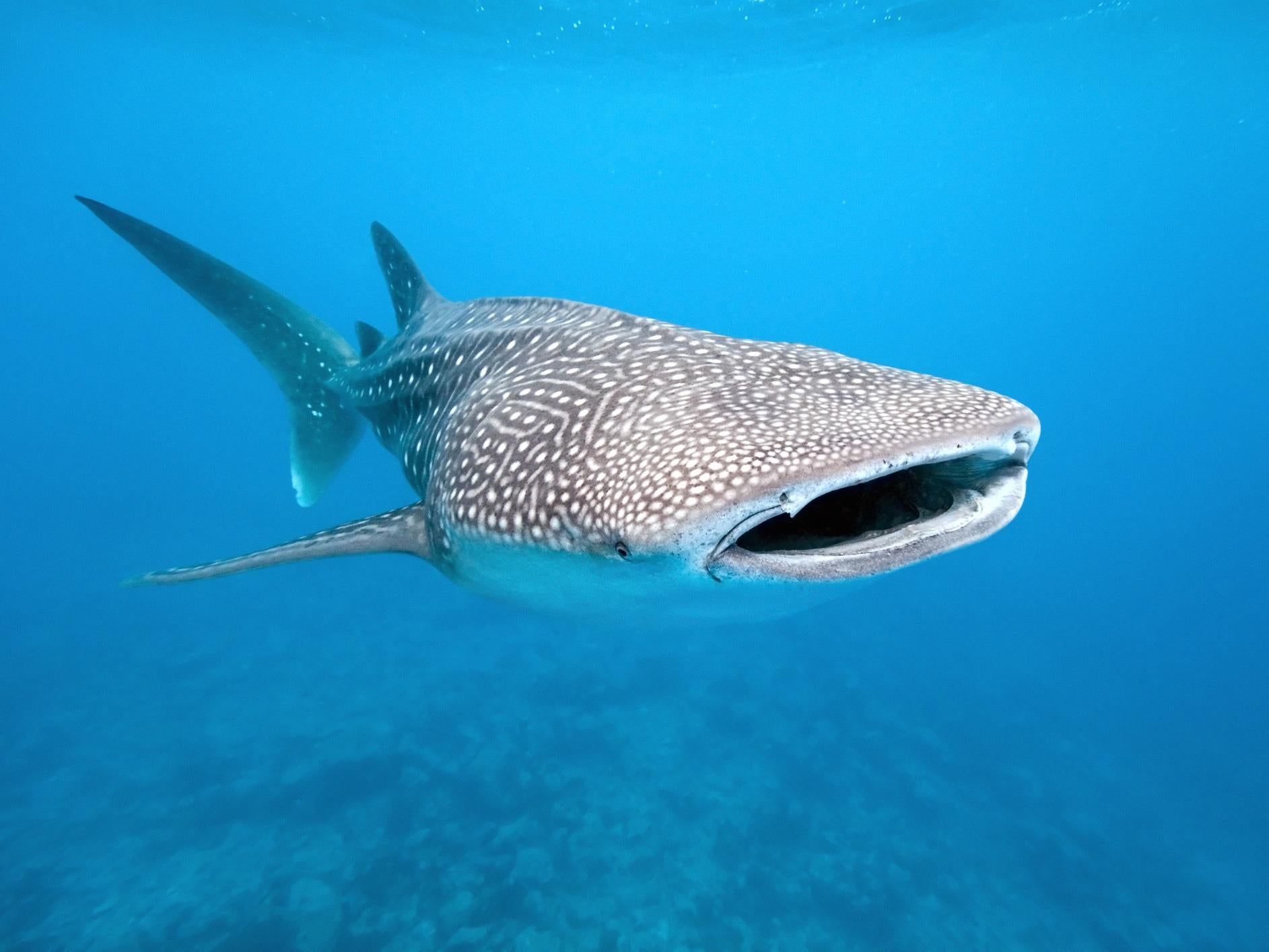Microplastics ‘pose major threat’ to whales and sharks, scientists warn
Ocean’s largest creatures are eating large quantities of plastic fragments, exposing them to toxic chemicals

Even the largest marine creatures are vulnerable to tiny fragments of plastic littering the world’s oceans.
A new study has found whales and whale sharks – the largest fish in the world – are ingesting microplastics in alarming quantities.
These creatures are filter feeders, meaning they consume large quantities of small prey by straining them out of the ocean water.
In the process, they swallow hundreds to thousands of cubic metres of water daily, meaning there is the potential for them to take in substantial amounts of microplastic floating in the water.
“Our studies on whale sharks in the Sea of Cortez and on fin whales in the Mediterranean Sea confirmed exposure to toxic chemicals, indicating that these filter feeders are taking up microplastics in their feeding grounds,” said Professor Maria Cristina Fossi of the University of Siena.
Microplastics are small pieces of plastic less than 5mm in size.
Some microplastics are manufactured, such as the microbeads added to health and beauty products, while others are the result of larger plastics gradually breaking down.
These plastics are pervasive in marine environments, and they are known to harbour toxic substances such as heavy metals and phthalates.
Since many animals are known to eat microplastics, scientists are concerned about the toxic substances contained within them, as well as their capacity to accumulate within the animals and stop them from absorbing nutrients correctly.
“Exposure to these plastic-associated toxins pose a major threat to the health of these animals since it can alter the hormones, which regulate the body’s growth and development, metabolism, and reproductive functions, among other things,” said Professor Fossi.
The study was published in the journal Trends in Ecology & Evolution.

Plastic pollution has received a lot of attention for its effects on marine animals, particularly after the broadcasting of the BBC’s Blue Planet II.
In the UK microbeads have recently been banned, and other plastic items such as water bottles and disposable coffee cups have also been in the firing line.
The Independent has recently launched its Cut the Cup Waste campaign specifically to address the problem of unrecyclable, plastic-lined coffee cups.
However, while scientists agree that plastic pollution is a problem for marine animals, there is still a lot they do not know about the magnitude of its impact.
“Despite the growing research on microplastics in the marine environment, there are only few studies that examine the effects on large filter feeders,” said Elitza Germanov, a researcher at the Marine Megafauna Foundation and lead author of the study.
Assessing plastic in the diets of large animals such as whales and whale sharks is difficult, as it relies on analysis of stomach contents.
However, by taking tissue samples from living animals, the scientists were able to test for the presence of toxic chemicals from microplastics in their bodies.
The researchers also estimated the numbers of plastic fragments being ingested daily by whales and whale sharks. While they thought whale sharks were likely eating nearly 200 items per day, the fin whales’ plastic consumption numbered in the thousands.
Many giant filter feeders are already listed as endangered, and often their feeding grounds overlap with some of the world’s worst pollution hotspots.
“It has become clear though that microplastic contamination has the potential to further reduce the population numbers of these species, many of which are long-lived and have few offspring throughout their lives,” said Ms Germanov.
Join our commenting forum
Join thought-provoking conversations, follow other Independent readers and see their replies
Comments
Bookmark popover
Removed from bookmarks